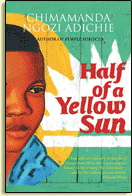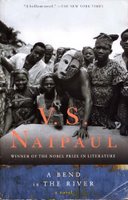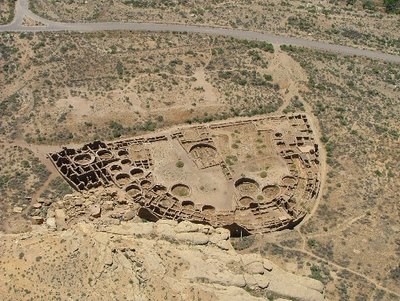 I
IThe book jacket of Half of a Yellow Sun is full of praises for its author, the young Nigerian writer Chimamanda Ngozi Adichie. There’s a quote from The Washington Post Book World heralding her as “the 21st century daughter of Chinua Achebe”. There’s an endorsement from Achebe himself: “She [Chimamanda] is endowed with the gift of ancient storytellers…She is fearless or she would not have taken on the intimidating horror of Nigeria’s civil war. Adichie came almost fully made.” But what interested me most was the writer Joyce Carol Oates’s blurb that the “novel is a worthy successor to such twentieth-century classics as Chinua Achebe’s Things Fall Apart and V.S. Naipaul’s A Bend in the River.”
At the Twin Cities book festival two weeks ago, where Chimamanda had come to read from her book, I asked her what she thought of Joyce Carol Oates’s remark; I was interested in the comparison to A Bend in the River. She smiled knowingly; she had been asked that question before.
Chimamanda said she liked some of Naipaul’s work but not A Bend in the River. And her Nigerian publisher had said to her that there was no way that Joyce Carol Oates’ remark could be on the edition of the novel that is to be released in Nigeria later this year. It showed how much Naipaul’s views are not liked in Nigeria, and perhaps, to make a bigger but not unreasonable generalization, in Africa as well.
After her reading, I was lucky to be able to talk with Chimamanda for more than an hour. At some point, I asked her about the character of Zabeth in A Bend in the River. Zabeth appears in the first chapter of the novel; she belongs to an African fishing community; she travels sixty miles, on foot and in barges towed by steamers, to buy items for her village from Salim, the narrator and protagonist of the novel (see this post for more). It was this sketch of Zabeth as a merchant woman, confident and self-assured of her trades, and the short but vivid description of the long journeys she made, that had drawn me into the novel. Zabeth’s character is perhaps the only African character in the novel that Naipaul allows to consistently maintain dignity.
My question about Zabeth did not seem to make an impression on Chimamanda. She was clear and unequivocal about how she felt: “Heart of Darkness was a long time ago, but I know the Africa of A Bend in the River. And I simply cannot consider something that denies Africa its humanity; I simply cannot consider it.”
II
Later, I realized how familiar those words were: for only a week or so ago, I had read the same sentiments in some of Achebe’s essays. In his famous analysis of the racism in Joseph Conrad’s Heart of Darkness, Achebe questions “whether a novel which celebrates this dehumanization [of Africa and Africans], which depersonalizes a portion of the human race, can be called a great work of art.”
Here is an example –a jolting one – of how Africans are thought of by Marlow, the narrator of Heart of Darkness, whose views, Achebe feels, are not different from those of Conrad’s. Marlow states in the novel: “Well you know, that was the worst of it – this suspicion of their [Africans] not being inhuman.”
Achebe writes of Marlow’s comment: “A more deadly deployment of a mere sixteen words it would be hard to imagine. I think it merits close reading. Note first the narrator’s suspicion; just suspicion, nothing more. And note that even the faint glimmer of apparent charitableness around his speculation is not, as you might have thought, a good thing, but actually the worst of it! And note, finally, the coup de grace of double negation, like a pair of prison guards, restraining that problematic being on each side.” Achebe is exceptional at insightful analysis of this sort: very carefully, he unearths the notions that lie behind words, notions that, especially when they come from someone as famous as Conrad, can go a long way in advancing and sustaining misconceptions.
And to those who dismiss such criticisms of Heart of Darkness with the excuse that racism was not yet an issue when Conrad wrote the book, Achebe has this superb rejoinder:
Finally, here is a scathing critique of contemporary writing on Africa in Granta 92: The View from Africa by the Kenyan writer Binyavanga Wainaina. Wainaina’s sarcasm is razor-edged and there's a hint of it even in the article's title, "How to write about Africa". Here are some excerpts:
At the Twin Cities book festival two weeks ago, where Chimamanda had come to read from her book, I asked her what she thought of Joyce Carol Oates’s remark; I was interested in the comparison to A Bend in the River. She smiled knowingly; she had been asked that question before.
Chimamanda said she liked some of Naipaul’s work but not A Bend in the River. And her Nigerian publisher had said to her that there was no way that Joyce Carol Oates’ remark could be on the edition of the novel that is to be released in Nigeria later this year. It showed how much Naipaul’s views are not liked in Nigeria, and perhaps, to make a bigger but not unreasonable generalization, in Africa as well.
After her reading, I was lucky to be able to talk with Chimamanda for more than an hour. At some point, I asked her about the character of Zabeth in A Bend in the River. Zabeth appears in the first chapter of the novel; she belongs to an African fishing community; she travels sixty miles, on foot and in barges towed by steamers, to buy items for her village from Salim, the narrator and protagonist of the novel (see this post for more). It was this sketch of Zabeth as a merchant woman, confident and self-assured of her trades, and the short but vivid description of the long journeys she made, that had drawn me into the novel. Zabeth’s character is perhaps the only African character in the novel that Naipaul allows to consistently maintain dignity.
My question about Zabeth did not seem to make an impression on Chimamanda. She was clear and unequivocal about how she felt: “Heart of Darkness was a long time ago, but I know the Africa of A Bend in the River. And I simply cannot consider something that denies Africa its humanity; I simply cannot consider it.”
II
Later, I realized how familiar those words were: for only a week or so ago, I had read the same sentiments in some of Achebe’s essays. In his famous analysis of the racism in Joseph Conrad’s Heart of Darkness, Achebe questions “whether a novel which celebrates this dehumanization [of Africa and Africans], which depersonalizes a portion of the human race, can be called a great work of art.”
Here is an example –a jolting one – of how Africans are thought of by Marlow, the narrator of Heart of Darkness, whose views, Achebe feels, are not different from those of Conrad’s. Marlow states in the novel: “Well you know, that was the worst of it – this suspicion of their [Africans] not being inhuman.”
Achebe writes of Marlow’s comment: “A more deadly deployment of a mere sixteen words it would be hard to imagine. I think it merits close reading. Note first the narrator’s suspicion; just suspicion, nothing more. And note that even the faint glimmer of apparent charitableness around his speculation is not, as you might have thought, a good thing, but actually the worst of it! And note, finally, the coup de grace of double negation, like a pair of prison guards, restraining that problematic being on each side.” Achebe is exceptional at insightful analysis of this sort: very carefully, he unearths the notions that lie behind words, notions that, especially when they come from someone as famous as Conrad, can go a long way in advancing and sustaining misconceptions.
And to those who dismiss such criticisms of Heart of Darkness with the excuse that racism was not yet an issue when Conrad wrote the book, Achebe has this superb rejoinder:
“In the preface of his, famous book, The Souls of Black Folk, he [W.E.B. Du Bois] wrote: ‘The problem of the Twentieth century is the problem of the color line.’ The verb he used is interesting: is instead of will be. And he wrote his words not during the 1960s Civil Rights marches in America as the tone might suggest to some, but actually in 1903 – ‘at the dawning of the Twentieth Century’, as he himself put it, and only a one year later than Conrad’s Heart of Darkness. This chronology is of utmost importance. Therefore the defence sometimes proffered: that Conrad should not be judged by the standards of later times; that racism had not become an issue in the world when he wrote his famous African novel, will have to clarify whose world it is talking about.”Naipaul has often been compared, in a positive sense, to Conrad: the Swedish academy, announcing the 2001 Nobel Prize in literature called Naipaul “Conrad’s heir as the annalist of destinies of empires in the moral sense: what they do to human beings.” But Naipaul is also talked of in the same breath as Conrad because the criticisms of Conrad apply to him as well; in his writings Naipaul reduces Africa to a generic “bush”. In one particular passage of A Bend in the River, the protagonist and narrator Salim – whose own views are inseparable from those of Naipaul’s – writes this:
“I asked for a cup of coffee…it was a tiny old man who served me. And I thought, not for the first time, that in the colonial days the hotel boys had been chosen for their small size and the ease with which they could be manhandled. That was no doubt why the region had provided so many slaves in the old days: slave people’s are wretched, half-men in everything except their capacity to breed the next generation.”A Bend in the River is viewed by many as a modern Heart of Darkness. Both are admired in the West, but for Africans, and critics like Achebe, they are both classic examples of superbly written books that give little consideration to Africa.
Finally, here is a scathing critique of contemporary writing on Africa in Granta 92: The View from Africa by the Kenyan writer Binyavanga Wainaina. Wainaina’s sarcasm is razor-edged and there's a hint of it even in the article's title, "How to write about Africa". Here are some excerpts:
“Always use the word ‘Africa’ or 'Darkness' or 'Safari' in your title. Subtitles may include the words 'Zanzibar', 'Masai', 'Zulu', 'Zambezi', 'Congo', 'Nile', 'Big', 'Sky', 'Shadow', 'Drum', 'Sun' or 'Bygone'. Also useful are words such as 'Guerrillas', 'Timeless', 'Primordial' and 'Tribal'…. Never have a picture of a well-adjusted African on the cover of your book, or in it, unless that African has won the Nobel Prize. An AK-47, prominent ribs, naked breasts: use these…In your text, treat Africa as if it were one country. It is hot and dusty with rolling grasslands and huge herds of animals and tall, thin people who are starving… Establish early on that your liberalism is impeccable, and mention near the beginning how much you love Africa, how you fell in love with the place and can't live without her. Africa is the only continent you can love—take advantage of this… Bad Western characters may include children of Tory cabinet ministers, Afrikaners, employees of the World Bank. When talking about exploitation by foreigners mention the Chinese and Indian traders. Blame the West for Africa's situation. But do not be too specific… Always end your book with Nelson Mandela saying something about rainbows or renaissances. Because you care.”

